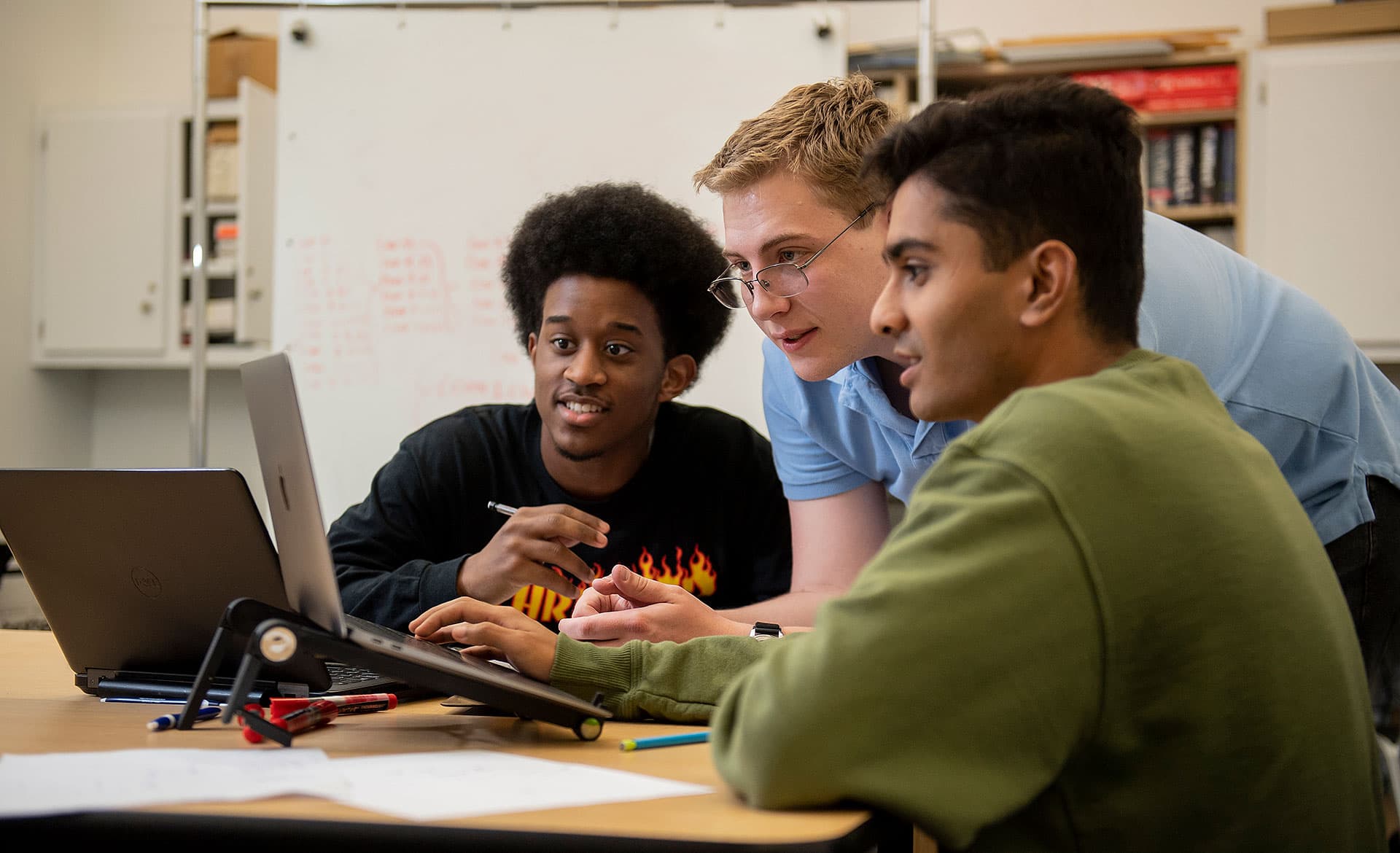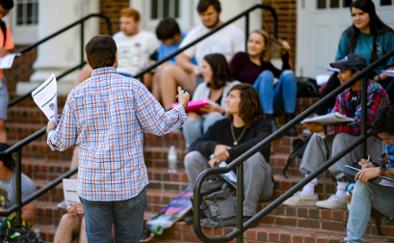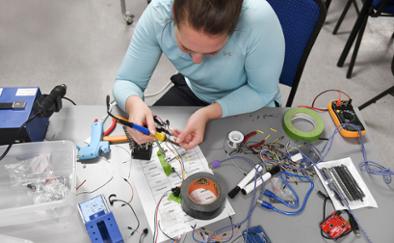Your Future Self Will Thank You. So Will Many Others.
Insider tip: the most meaningful kind of learning takes place when you’re at the center of the action, not furiously scribbling notes in a packed lecture hall.
That’s why we design so many courses to be hands-on and project based. It allows your professors to understand all that drives, interests and motivates you. And it helps them plug you into customized, immersive experiences (internships, research, LifeWorks) that build on and enhance your coursework.
As a Berry computer science major, you’ll start with rigorous foundational concepts, then learn practical applications of your knowledge, become confident in your ability to adapt to fast-changing technology and graduate ready to have a positive influence on the future of computing and society. Result: you’ll be exceedingly well-prepared to contribute to more fields, and in more careers, than you imagined.
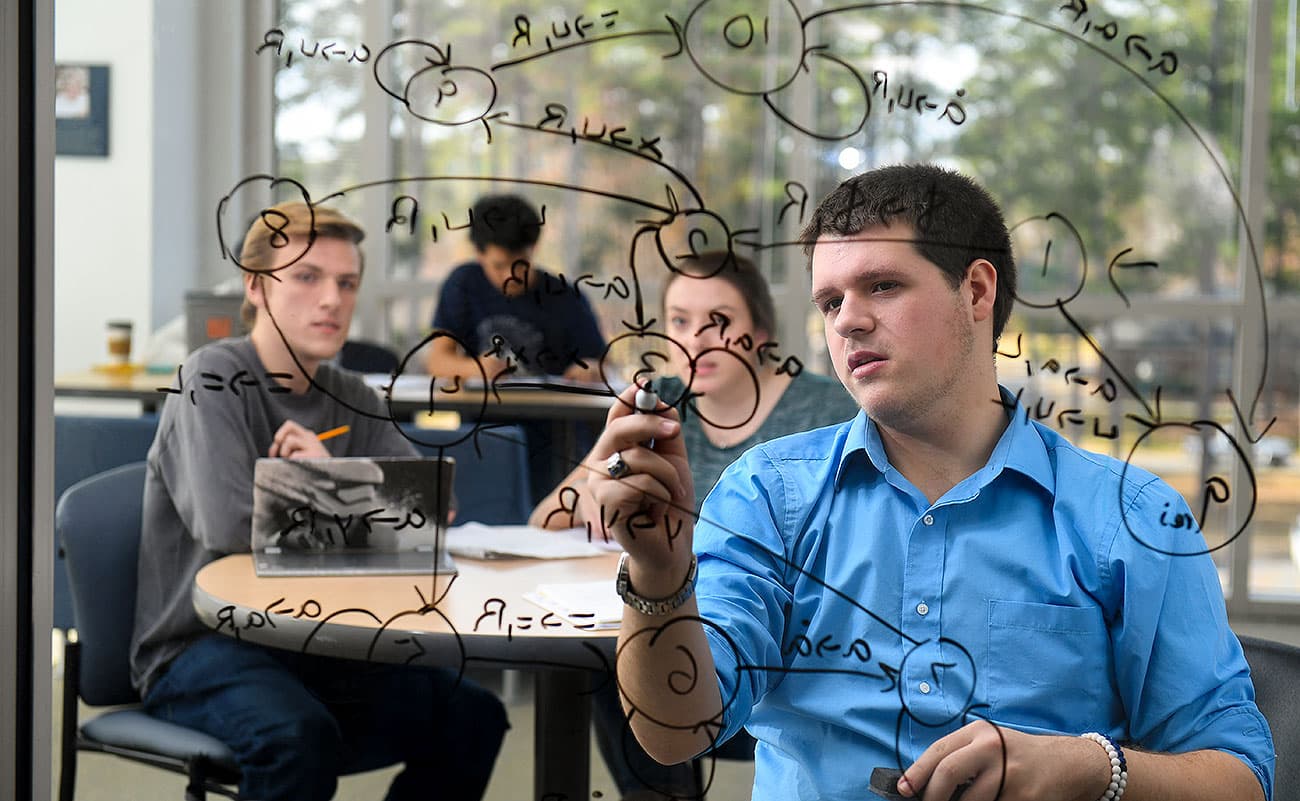
It’s a tried and tested approach. You can learn more by doing. Here, you can collaborate with a professor on published research. Cultivate leadership chops mentoring peers as a teaching assistant. Assist in software development projects that exponentially deepen your technical acumen and problem-solving skills. Support the college’s technical infrastructure through the Berry Information Technology Students (BITS) Program.
Computer Science FACULTY

Nadeem Abdul Hamid is associate professor of computer science at Berry College and chair of the department of mathematics and computer science. Dr. Hamid has taught a wide selection of courses in the computer science curriculum. He has a research background in programming languages and formal methods, and has ongoing projects developing software tools for enhancing computer science education.
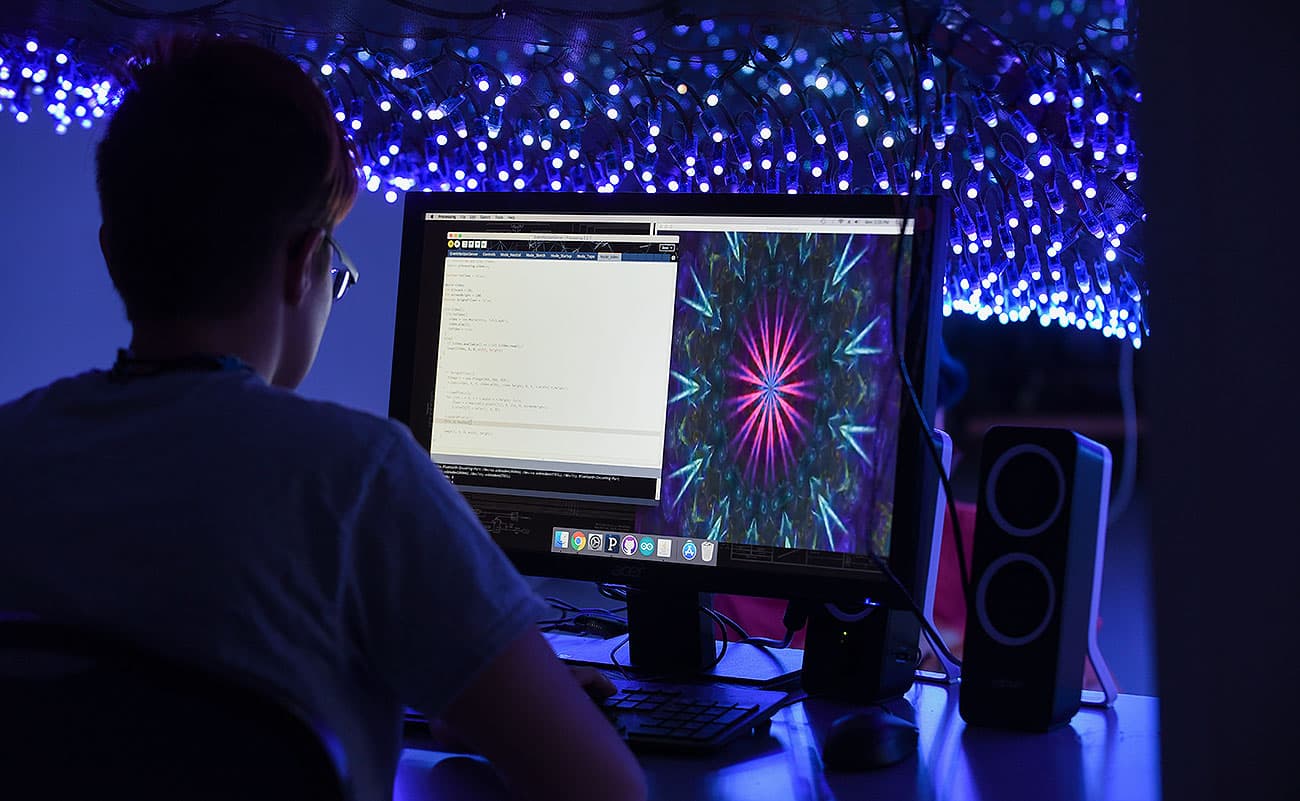
The largest campus in the country offers you the types of resources other colleges simply can’t. Become adept with the latest hard and software technologies in the Student Projects Lab. Give shape to your ideas in the Physical Computing Lab or Hackberry Lab makerspace.
Computer Science Courses
Build a foundation in electronics and microcontroller programming for prototyping physical systems that incorporate sensors, displays and actuators. Explore techniques for creating richly interactive experiences using computationally enabled devices.
Discover the many technologies that are used to program multi-tiered, client/server, database-intensive, web-based applications. You’ll learn languages and tools for producing static web pages, generating content dynamically on the client (browser) side, generating content dynamically on the server side and server interaction with databases.
Centered around a constructive, hands-on approach in which a general-purpose computer system is built from the ground up. This course consists of an integration of key topics from algorithms, computer architecture, operating systems, compilers and software engineering in one unified framework.
Computer Science LIVES
Derek Detweiler ’03 is designing video games he dreamed of building as kid. After graduation, he started as a technical manager at Appalachian State University but never stopped learning new coding languages on the side. In 2010, his side hobby took off as a career when Google chose his experimental games to promote the early Chrome Web Store. As a double major in computer science and math at Berry, he notes how his professor’s teaching style and campus job experience influenced the evolution of his career. Today he is the lead creative engineer at Makefully, a game design company building learning experiences for partners like PBS Kids and LEGO Foundation.
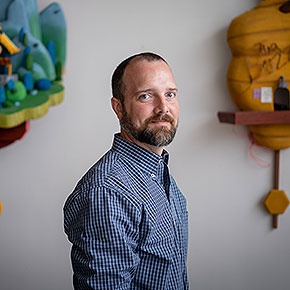
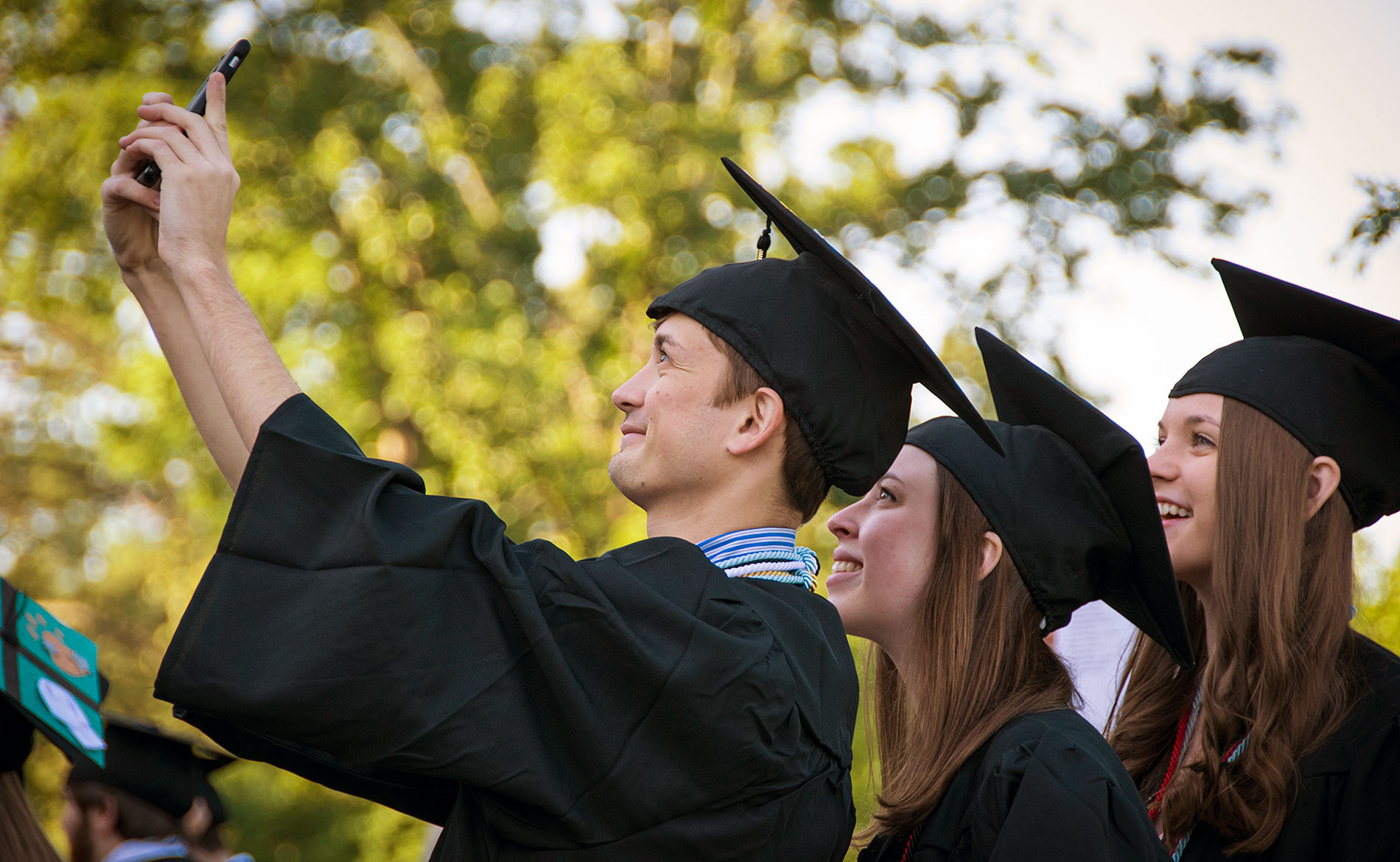
HERE?
